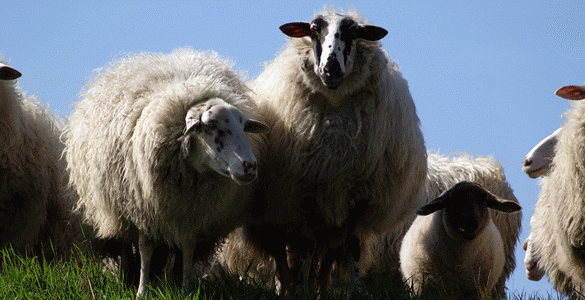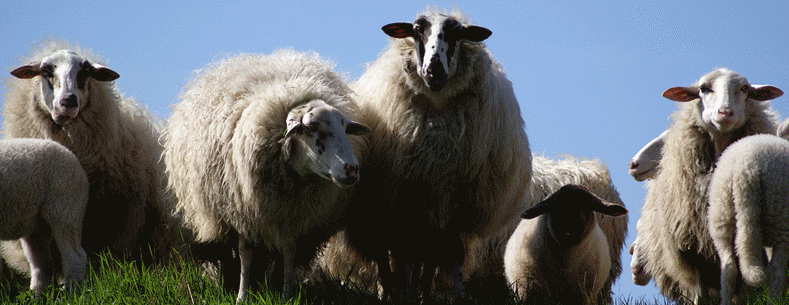Agricultural policy across the UK is changing. As the UK leaves the EU, it departs from the current subsidy system of the Common Agricultural Policy (CAP) that has underpinned UK farming for several decades. All of the constituent UK countries have published their proposals for post-Brexit agricultural policies:
- Wales- Brexit and our land
- England- Health and harmony: the future for food, farming and the environment in a Green Brexit and the UK Agriculture Bill
- Scotland- Stability and Simplicity: proposals for a rural funding transition period
- Northern Ireland- Future Agricultural Policy Framework.
Glossary
Direct Payments: These are income support payments paid to all farmers that are eligible to receive them. They include ‘greening’ measures and ‘cross-compliance’. Direct Payments make up ‘Pillar 1’ of CAP.
Basic Payment Scheme: This is the key mechanism by which Direct Payments are distributed to farmers. Each Member State/Region is given an annual allocation to distribute to farmers for each of the seven years covered by the CAP.
Rural Development Programme (RDP): All Member States/Regions are given match funding by the EU for seven year programmes to support a number of rural development measures on their territory. This is known as the Rural Development Programme and makes up ‘Pillar 2’ of CAP. Member States/Regions are required to spend at least some of the funding on agri-environment schemes and some on LEADER projects (community run regeneration schemes for rural areas).
As things stand, all EU rules will continue to apply during a transition period (expected to extend from 29 March 2019 until 31 December 2020) albeit subject to provisions made under the EU (Withdrawal) Act 2018. However, an important exception is CAP Direct Payments which will no longer apply in 2020. Instead the UK will begin to apply new domestic rules. However, in the event of a no deal Brexit, the transition period will not apply and domestic powers and responsibilities will take effect from 29 March 2019. This blog post sets out the expected transition to the new agricultural policies across the UK based on what we know so far

Wales- Brexit and our land
2018-2019
The Basic Payment Scheme for 2018-2019 will continue. Current Glastir contracts (agri-environment scheme under the RDP) will continue to be honoured. EU rules and standards will continue to apply.
2020-2024
Transition will begin with three concurrent elements:
- Phase 1: Phased withdrawal of the Basic Payment Scheme. Options include reducing payments in absolute terms, proportionately or by changing capping rates.
- Phase 2: Introduction of new schemes. Possibly by allocating funds to pilot projects before full-scale implementation.
- Phase 3: Exit from the RDP. The RDP comes to an end in 2020 but all commitments in place at the point of leaving the EU will be met (to ‘2023 and beyond’).
2025 and beyond
The expectation is to have the new schemes fully in place by 2025 replacing CAP in its entirety. The new ‘Land Management Programme’ is proposed to have two schemes:
- Economic Resilience scheme: investment for economic activities, in particular food and timber production. The scheme will provide support to: 1) increase market potential; 2) drive improvements in productivity; 3) diversify; 4) improve risk management; and 5) enhance knowledge exchange and skills.
- Public Goods scheme: direct support for public goods delivery, in particular for the environment. It will provide a new income stream for land managers and make a ‘significant contribution’ to addressing climate change, biodiversity decline, adverse air quality and poor water quality. There is a proposed ‘outcomes-based’ approach to payments.
Farmers will have access to both funding streams.
Legislation
The Cabinet Secretary for Energy, Planning and Rural Affairs, Lesley Griffiths, has announced her ambition to have Welsh primary legislation in place before the end of this Assembly term. In addition, the UK Agriculture Bill (laid on 12 September) includes provisions relating to Wales in a separate schedule to provide powers to start the phased transition. A Welsh Government statement provides more detail. The Research Service will produce a further blog on the UK Bill in due course.
England- Health and harmony
2018-2019
The Basic Payment Scheme for 2018-2019 will continue. A simplified Countryside Stewardship scheme (agri-environment scheme) is being offered. Current contracts will continue to be honoured. EU rules and standards will continue to apply.
2020-2027
There will be an agricultural transition period up to 2027 as current payments are phased out. The UK Government will seek to apply reductions to Direct Payments. This could be through a maximum cap or a sliding scale of reductions. More radically, an alternative system of removing the need for recipients to meet land eligibility rules or comply with greening is also suggested. A simplified Countryside Stewardship scheme is also proposed. During the transition, the UK Government plans to ‘maintain a strong regulatory baseline of standards that reflects the ‘polluter pays’ principle’. Cross-compliance will no longer need to be adhered to. Risk-based inspections are suggested. Once transition ends, a proposed ‘Environmental Management Scheme’ will replace CAP based on ‘public money for public goods’ with an outcomes-based approach.
Legislation
The UK Agriculture Bill was laid on 12 September.
Scotland- Stability and simplicity
2018-2019
The Basic Payment Scheme for 2018-2019 will continue. A simplification task force is expected to run from autumn 2018 for a year with the intention of reducing complexity and improving public value. The Scottish RDP will continue to run under CAP rules. The Scottish Government intends to continue to provide the Less Favoured Area Support scheme (LFASS) at 100% (£65 million per year) in 2018 reducing to 80% of the current rates in 2019.
2020-2023
Direct Payments will continue, though possible changes include capping payments and streamlining applications, inspections and accounting. Many of the Scottish RDP schemes will continue with some changes to improve policy outcomes. Funding for LFASS will be at 20% of current levels in 2020.
2024 and beyond
A new domestic policy is expected to be in place from 31 March 2024. There is no outline of the policy yet and the consultation states that it ‘marks the start of the process’.
Legislation
To date there has been no announcement of Scottish primary legislation and there are no Scottish specific provisions in the UK Agriculture Bill.
Northern Ireland- Future Agricultural Policy Framework
2018-2019
The Basic Payment Scheme for 2018-2019 will continue. The RDP schemes will continue to run, potentially beyond 2020.
2020 – 2021
The Department of Agriculture, Environment and Rural Affairs (DAERA) will seek to maintain the status quo during the 2020-2021 scheme years. However, limited changes may be made to simplify the regime. Options include continuing the current transition towards a flat rate payment by 2021 or freezing the value of entitlements at the end of 2019 (consequently remaining the same for 2020 and 2021). Options also include changes to the greening requirements, the Young Farmers Payments and the Regional Reserve.
2022 and beyond
A new agricultural policy framework is proposed after 2021. The consultation states that it is likely that the move to a new policy agenda will need to happen over a number of years for a managed transition.
Legislation
To date there has been no announcement of Northern Irish primary legislation. There is a Northern Ireland specific schedule in the UK Agriculture Bill.
Commonality / divergence between the proposals across the UK
There is common recognition of the importance of synergy between food production and public goods provision. The detail of how a more integrated approach will be supported remains to be seen, however varying emphasis is emerging between the consultation documents. For example, England’s proposals puts significant emphasis on ‘public money for public goods’ and presents a ‘green vision’ for agriculture post-Brexit. The Welsh Government also shares a public goods vision as demonstrated through its proposed Public Goods Scheme. However it also places significant emphasis on food production (albeit considering food production as separate to ‘public goods’) through the proposed Economic Resilience Scheme. An equivalent scheme is not proposed in the English consultation. All countries are proposing an outcomes-based approach in relation to public goods provision. This is a significant change from the current approach which is mainly based on inputs (e.g. Glastir prescriptions) and could have implications for both farmers’ payments and environmental protection/enhancement.
CAP 2021-2027
As new proposals are being developed across the UK, the next round of the CAP (2021-2027) is being developed at EU level. On 1 June 2018 the European Commission published its proposed regulations.
Article by Katy Orford, National Assembly for Wales Research Service. Acknowledgement to Wendy Kenyon (Scottish Parliament Information Centre) and Emma Downing (House of Commons Library) for input.






